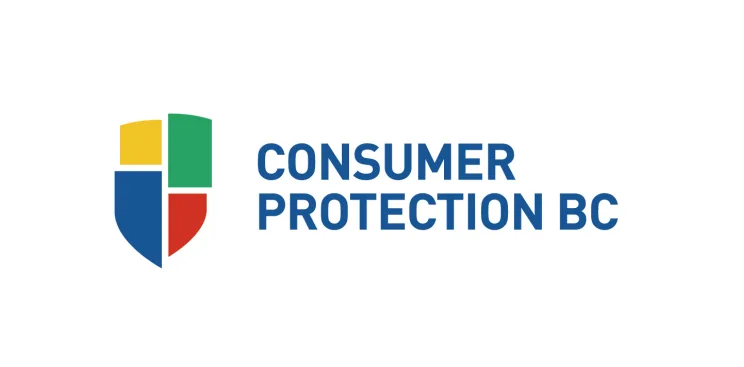
A contract has to be in writing in order to be binding.
Many everyday situations involve contracts. You enter into a contract when you buy a pair of shoes, hire a babysitter, or rent a car. Given how common contracts are in our daily lives, it’s helpful to know how contracts are created.
What you should know
A contract is a legally recognized agreement made between two or more people (called the parties). If one party fails to do what they promised, the other can ask a court to enforce the contract.
To be valid, a contract needs these three elements:
agreement: the parties must agree or have a “meeting of the minds” on the terms
consideration: both parties must receive something of value
intention: both parties must intend the agreement to be legally binding
Let’s unpack each of these elements.
To form a contract, the parties must agree on the essential terms. The agreement is formed by one party making an offer of certain terms, and the other party then freely indicating their acceptance of those terms.
This can be done in different ways. Parties may negotiate terms in a conversation, coming to an agreement. There may be an exchange of emails in which the parties reach an agreement. Or it can happen without any real formalities, as when you buy something from a shop. By presenting the goods and your money to the shopkeeper, you’re offering to buy the items. By taking your money, the shopkeeper is accepting your offer.
The offer must be so clear that an agreement can happen with the other party’s acceptance. A generic “for sale” sign on a used car is not an offer. Some needed information is missing. The sign doesn’t spell out the terms that would need to be agreed to (such as price). The sign is merely an invitation to treat. It’s basically an invitation for someone to make an offer.
The person making an offer can withdraw it at any time up to the moment where it’s accepted. If the offer isn’t withdrawn, a binding contract happens the moment the offer is accepted.
The acceptance of the offer may consist of words or acts, but it must be an acceptance of the offer as made. A response to an offer that makes any material change in the terms of the offer is not an acceptance. It’s a counteroffer.
“While visiting a flea market, I saw a shirt I liked, but thought the $50 price tag seemed high. I made an offer to the seller to buy the shirt for $30. The seller told me the shirt was mine for $40. I said I’d take it.”
– Virginia, Salmon Arm, BC

In the language of contracts, the $50 price tag on the shirt Virginia bought was an invitation to treat. In response to Virginia’s offer to buy the shirt for $30, the seller made a counteroffer of $40. The seller made a material change to Virginia’s offer, establishing a new price. When she accepted the seller’s counteroffer, the two had a valid contract for the sale of the shirt for $40.
Making a contract involves an exchange of something of value to each party. Most often, it’s money going one way and a good or service going the other way. But money doesn’t have to be involved. As long as both parties give up something of value, they can make a valid contract. Whatever is given or paid is called consideration.
“My friend Steven was looking to sell his car. I was interested, but I didn’t have the money. We agreed that instead of paying cash I would walk Steven’s dog every day for a year. Unusual, yes, but it works for both of us. I’m providing something of value to him in exchange for the car!"
– Emily, North Vancouver, BC

In the language of contracts, Emily provided something of value — the service of walking Steven’s dog — in exchange for the car. They had made a valid contract.
Although each party must receive something desirable, the exchange doesn’t need to be even. What one party receives need not have the same monetary value as what the other party receives. There can still be a contract, for example, when a person rents out a room in their house to a friend for a nominal amount like $10 per month. As long as each party gets something of value (to them), the contract will typically be enforceable.
Contracts can be made "under seal"
If a contract is prepared by a lawyer or notary, it can be made under seal. A contract made under seal doesn’t need consideration to be binding. If a contract is made under seal, it can still be binding even if one party doesn’t receive anything of value. A contract is said to be sealed when the parties show an intention to sign it under seal. This might be shown by attaching a wax seal to the contract or including a clause saying that the contract is "signed, sealed and delivered by the parties."
Not all agreements are contracts. For an agreement to be legally enforceable as a contract, both parties must intend to be bound by their promise.
This intention is rarely stated explicitly. But a reasonable person could infer it from the circumstances.
For example, offering a friend a car ride isn’t usually intended as a legally binding contract. But what if, say, you make an arrangement with the friend to drive them to work on a regular basis in exchange for the friend paying you $20 each week towards the fuel and maintenance costs of the car? The law is more likely to recognize that as a contract.
In most cases, a contract doesn’t have to be in writing. In fact, most of the everyday contracts we make, such as buying a movie ticket or going to the hairdresser, are not put in writing. If the elements of a contract are present, an oral agreement is just as legal and binding as a written one.
A contract is an agreement between people; a written document is usually just proof of the agreement.
However, some kinds of contracts must be in writing. For example:
When real estate is involved. An agreement to buy and sell a home must be in writing, and so must the mortgage that makes the purchase possible.
Contracts containing a guarantee. A guarantee is an agreement where one party agrees to pay the debt of another person if that person defaults on the debt.
A distance sales contract. This kind of contract is one that’s not entered into in person but rather at a remove — say, online or over the phone. Because there’s no opportunity to inspect what you’re buying, the contract must be in writing.
A door-to-door sales contract, known under the law as a direct sales contract.
A payday loan agreement. Payday loans are small, short-term loans — for $1,500 or less — that must be repaid within 62 days.
Prevent problems
Before making a contract, gather information from credible sources on the product or service involved. For example, if you’re buying a car, try the Canadian Black Book or AutoTrader.ca to learn the average price of the vehicle models you’re considering.
Read reviews from trustworthy sources. Consumer Reports is an independent, non-profit source of product reviews.
If you’re hiring a service provider such as a contractor or tradesperson, ask for the names and numbers of people they’ve worked for in the past. Call these references and ask them questions. How would you rate the quality of the work? Was it done on time and within budget?
Contact the Better Business Bureau serving your area. What do they know of the service provider or company you’re thinking of doing business with?
See what other people are saying about this company. Search online for the company’s name plus "reviews" or "complaints."
When you make an offer to the seller or other party, proceed boldly. Be polite and reasonable, but firm.
It’s common for the parties to go back and forth with changes to an agreement until both are satisfied with what’s in it.
Even when the law doesn’t say you have to have a written contract, you should have one if you’re exchanging something expensive. For example, a written contract is a good idea if you’re:
hiring someone to do home improvements
buying or selling an electronic device
If a problem arises, you can then go back to the written contract rather than argue over “who said what.”
Contracts shouldn't be overly complex
A contract doesn’t have to be pages long and full of legalese. In fact, it’s better if the contract is concise and written in language all parties understand. See our tips on how to write a legal contract.
Read the fine print on any contract before you sign. Don’t take this step lightly.
Go over every section of the document, including any text on the reverse side of printed pages.
Ask the other party to explain anything in the agreement you don’t understand.
Fill in all areas of the document, and put a line through the blank spaces.
If the other party makes a counteroffer to your original offer and you’d like to think about it, that’s okay. You can simply stop the deal if you feel like you’re being pressured into paying too much or buying additional features.
Common questions
Yes. Agreements made in emails can be valid contracts. The format of an agreement — paper or electronic — doesn’t matter. As long as the elements of a contract are present (see above), it’s a contract.
No. Each party must have the legal capacity to make it. To have legal capacity means you’re able to understand what’s in the contract. And you can understand what effect the contract will have on you.
A person of any age can enter into a contract in British Columbia. But special rules apply if a person under age 19 — a minor — enters into a contract.
A contract can’t be enforced against a minor. Though there are some exceptions:
if the contract provides the minor with the “necessaries” of life — services vital to the minor’s health or welfare,
if on reaching age 19, the minor affirms the contract (that is, agrees to be bound by it), or
if within one year of reaching age 19, the minor partially performs the contract or doesn’t “repudiate” (reject) it.
If none of these exceptions apply, a minor isn't responsible for keeping up their end of any contract they enter.
On the other hand, a minor can enforce a contract against an adult party to the contract.
“I agreed to paint my neighbour Harold’s fence this summer for $200. Then my family organized a big summer trip to Europe. My dad told me that because I’m 17, I could get out of the contract to paint the fence without any penalty. Because I’m a minor, I could enforce the contract against Harold, but he can’t enforce the contract against me."
– Jordan, Chilliwack, BC

Jordan’s dad is right. The contract between Jordan and his neighbour Harold is legal. It’s enforceable by Jordan against Harold. If Harold later changed his mind and said he didn’t want Jordan to paint the fence, Jordan could insist that Harold honour their contract.
But because Jordan is a minor, the contract is not enforceable by his neighbour Harold. Jordan can later change his mind and say he doesn’t want to paint the fence, and the contract would be cancelled. (Note that Harold wouldn’t have to pay Jordan anything if Jordan hadn’t started on the painting when he cancelled the contract.)
It depends. An estimate is an educated guess about how much certain work will cost. Whether an estimate is a binding contract depends on the intention of the parties, and whether the estimate is reasonable. How to determine the intention of the parties? Relevant factors include:
whether cost is very important to the party receiving the estimate
whether the party receiving the estimate relied on it
the relative expertise of the parties
Under the law, there’s an understanding that estimates are a best guess and not precise. A margin of error of 10% to 20% is commonly applied. In other words, if a contractor estimated a home renovation would cost $10,000, they could invoice $11,000 or even $12,000 and stay within the allowed wiggle room.
Note that regardless of whether an estimate is considered to be a binding contract, it’s an unfair practice for a business to provide an estimate that’s materially less than the final bill. That’s unless the other party agrees to the new higher price before the work is done.
Estimate versus quote
An estimate is a business’ best guess as to how much certain work will cost. The end price could be less, or more. Whether an estimate is a binding contract depends on the intention of the parties and whether the estimate is reasonable. A margin of error of 10% to 20% is commonly accepted.
A quote is when someone promises to do work for a certain price. If the quote is accepted, it’s a legally binding contract, and no more than the quote can be charged.
Yes. When a counteroffer is made, a new offer is now on the table. It’s up to the other person whether they want to accept it, making a contract. The previous offer is out of the picture.
Let’s say a car dealer offers to sell you a used car for $12,000. You say yes, but only if the car passes an independent inspection. You’ve made a counteroffer. If the dealer rejects your counteroffer, there’s no contract. The previous offer made by the dealer to sell you the car for $12,000 without the inspection no longer exists. It is simply not available to be accepted, unless the dealer makes it again.
No. A contract made for an unlawful purpose is not enforceable. For example, a contract made with the intent of harming someone is not enforceable.
Usually not. The general rule is that a promise to give something in exchange for nothing would be considered a gift. The legal principle of consideration requires both parties to give up something of value for the agreement to be enforceable. Your friend agreed to give up $100, but you haven’t agreed to do anything in return. As a result, your friend’s promise is unenforceable.
However, if you relied on your friend’s promise to your detriment, then you might be able to enforce your friend’s promise. For example, let’s say your friend promised to give you a $100 gift so you could buy a cellphone. You relied on the promise, went to the store, and bought a $100 cellphone. You might be entitled to enforce your friend’s promise. You counted on them delivering and you bought something you really couldn’t afford. They should have foreseen this possibility.
Who can help

Consumer Protection BC
Assistance relating to certain types of consumer problems and contracts in BC.



